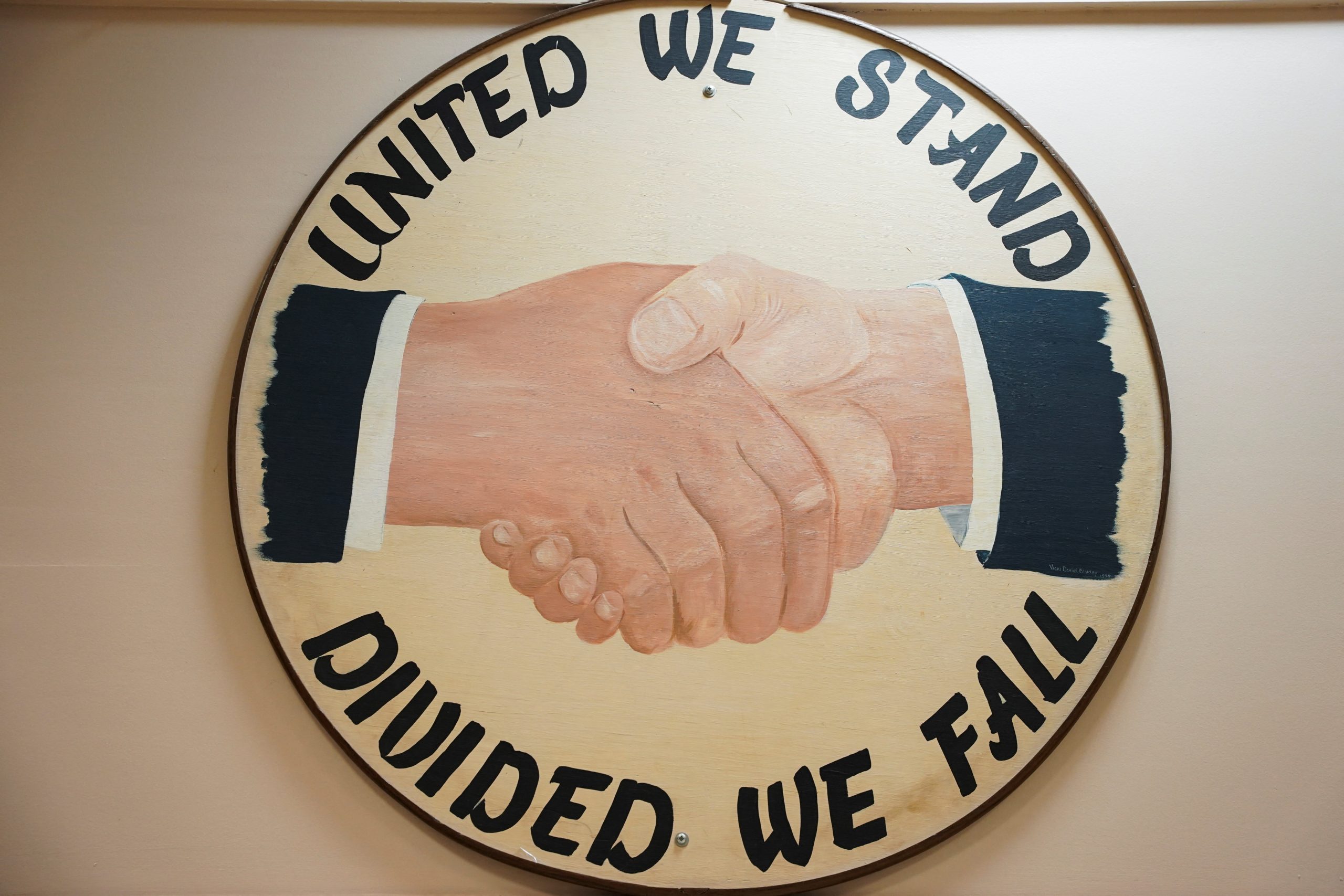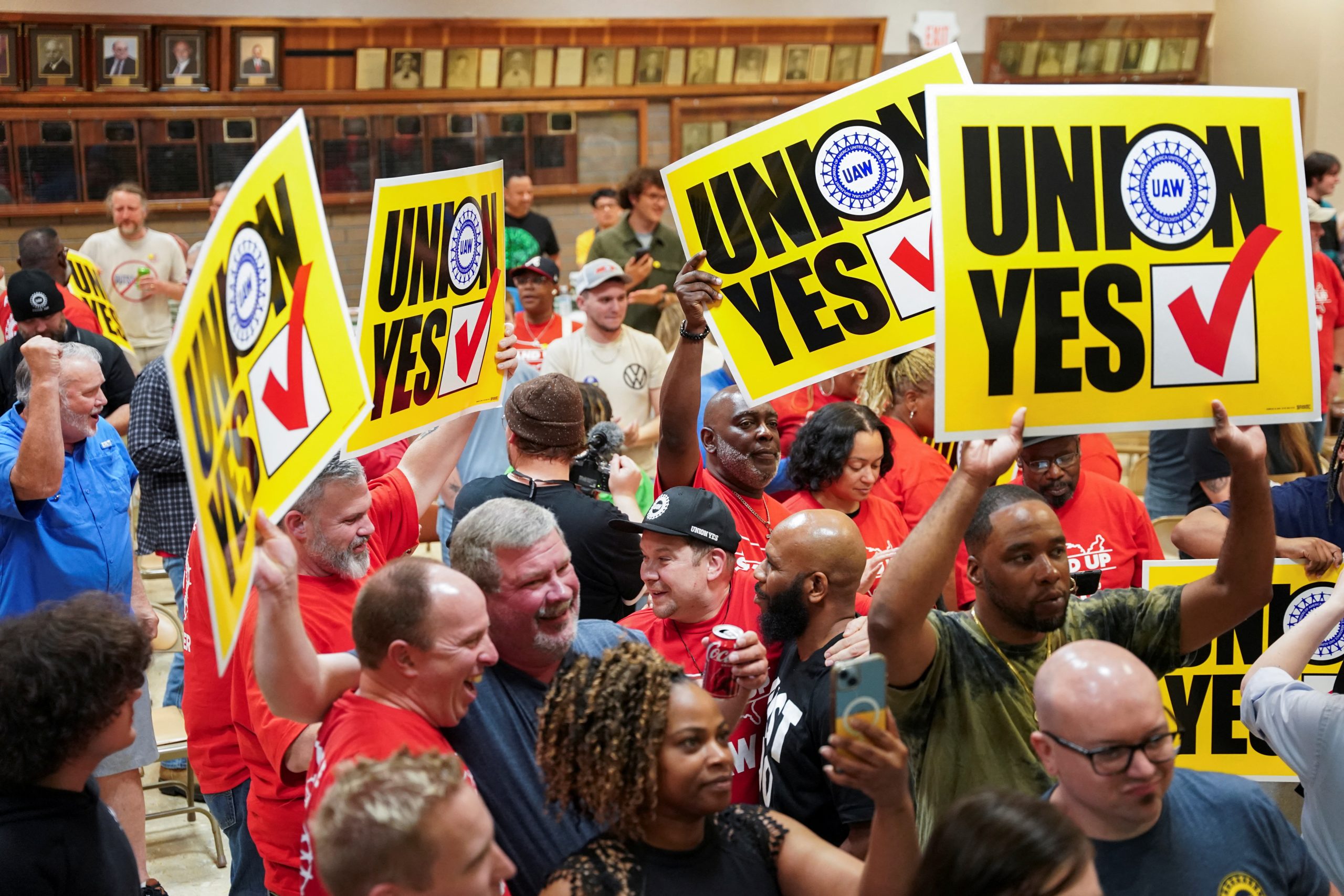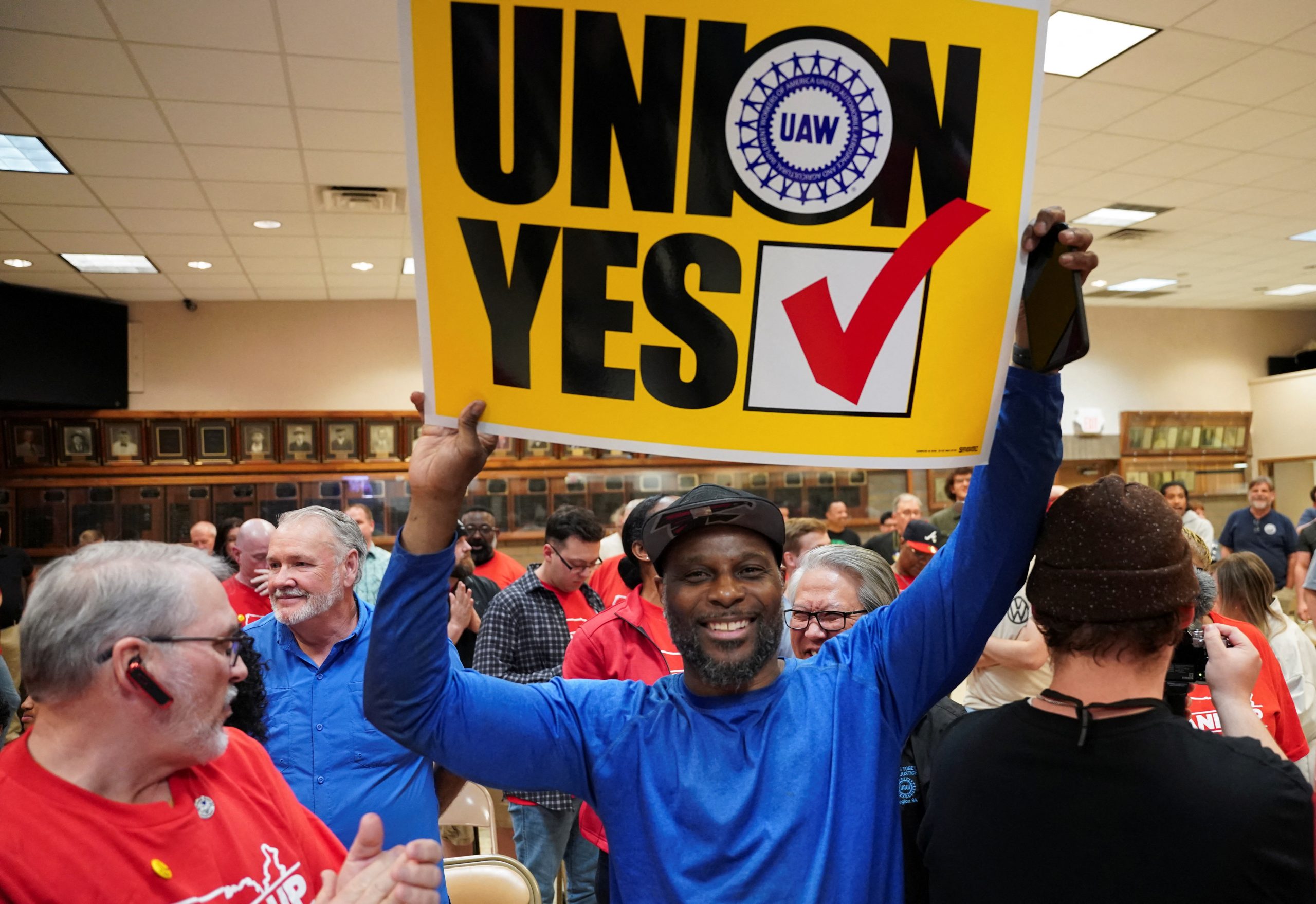In a groundbreaking turn of events, employees at Volkswagen’s Tennessee plant have voted in favor of joining the United Auto Workers (UAW), marking a significant triumph for the union as it expands its reach beyond traditional strongholds like Detroit into the Southern and Western regions of the United States.
With a resounding majority, the vote saw 2,628 workers in favor of unionization compared to 985 against, representing a decisive 73% in favor of joining the UAW.
This victory not only establishes the Chattanooga factory as the first auto plant in the South to unionize via election since the 1940s but also marks the first time a foreign-owned auto plant in the region has done so.
Historic Victory Marks Turning Point in Southern Auto Industry Unionization Efforts

The outcome stands as a testament to the tireless efforts of UAW President Shawn Fain and his team, who have committed substantial resources towards the campaign to unionize plants owned by over a dozen automakers nationwide.
Fain’s reputation for assertive bargaining tactics has been underscored by a pledge to allocate $40 million through 2026 to bolster this endeavor.
At a celebratory gathering following the announcement, jubilant workers, some moved to tears, raised their arms in triumph, clutching “Union Yes” posters as symbols of their victory.
Their enthusiasm was palpable, with one employee, Lisa Elliott, expressing her exhilaration at achieving their goal and rallying support for unionization efforts at other companies, notably Mercedes.

Indeed, the momentum appears to be building, with the upcoming UAW election scheduled at a Mercedes plant in Alabama, where a majority of workers have already signaled their support for unionization.
Fain, addressing the crowd, hailed the workers’ courage in standing up for their rights and pledged to continue the fight for fair labor practices across the industry.
While previous attempts by the UAW at the same VW plant had narrowly missed the mark, this year’s victory comes amidst a backdrop of growing public support for unions and successful contract negotiations with major automakers.
The result, hailed by labor experts as a historic moment, underscores the enduring relevance and potency of organized labor in shaping the future of the automotive industry.

Despite initial neutrality from Volkswagen, the company’s only non-union factory globally, the overwhelming support for unionization reflects a shifting scenario in labor relations, propelled by grassroots activism and a renewed focus on workplace rights and benefits.
As the UAW sets its sights on further expansion, buoyed by recent successes, the stage is set for a transformative era in the American automotive scenario.






Leave a Reply